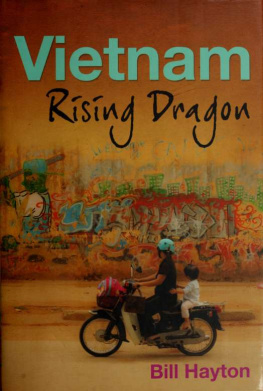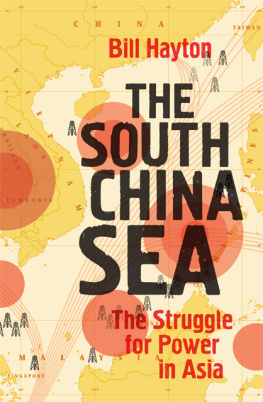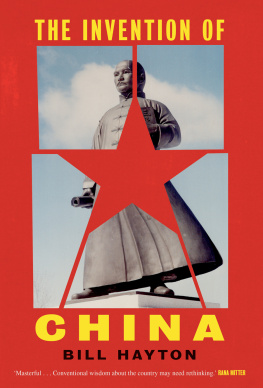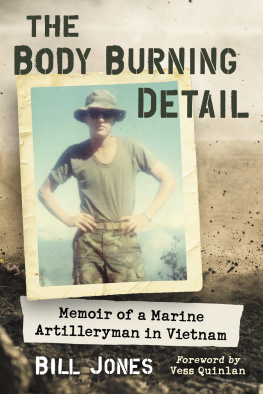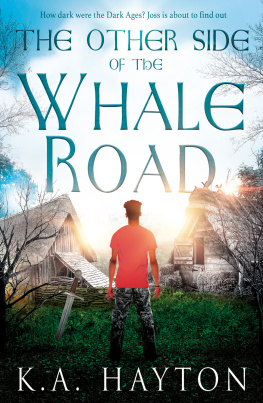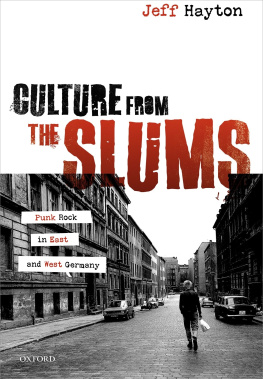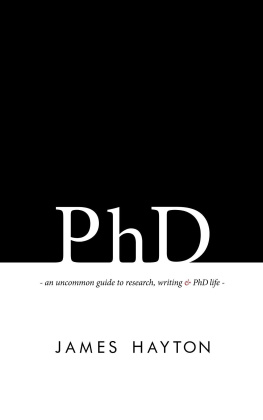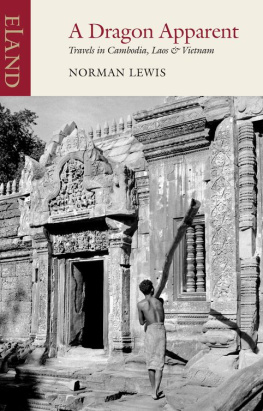Bill Hayton - Vietnam: Rising Dragon
Here you can read online Bill Hayton - Vietnam: Rising Dragon full text of the book (entire story) in english for free. Download pdf and epub, get meaning, cover and reviews about this ebook. year: 2010, publisher: Yale University Press, genre: History. Description of the work, (preface) as well as reviews are available. Best literature library LitArk.com created for fans of good reading and offers a wide selection of genres:
Romance novel
Science fiction
Adventure
Detective
Science
History
Home and family
Prose
Art
Politics
Computer
Non-fiction
Religion
Business
Children
Humor
Choose a favorite category and find really read worthwhile books. Enjoy immersion in the world of imagination, feel the emotions of the characters or learn something new for yourself, make an fascinating discovery.
- Book:Vietnam: Rising Dragon
- Author:
- Publisher:Yale University Press
- Genre:
- Year:2010
- Rating:5 / 5
- Favourites:Add to favourites
- Your mark:
- 100
- 1
- 2
- 3
- 4
- 5
Vietnam: Rising Dragon: summary, description and annotation
We offer to read an annotation, description, summary or preface (depends on what the author of the book "Vietnam: Rising Dragon" wrote himself). If you haven't found the necessary information about the book — write in the comments, we will try to find it.
Vietnam: Rising Dragon — read online for free the complete book (whole text) full work
Below is the text of the book, divided by pages. System saving the place of the last page read, allows you to conveniently read the book "Vietnam: Rising Dragon" online for free, without having to search again every time where you left off. Put a bookmark, and you can go to the page where you finished reading at any time.
Font size:
Interval:
Bookmark:
This book made available by the Internet Archive.





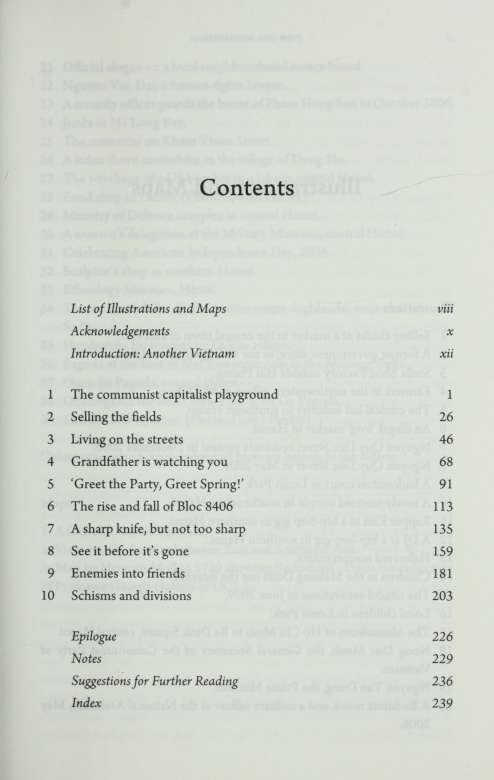
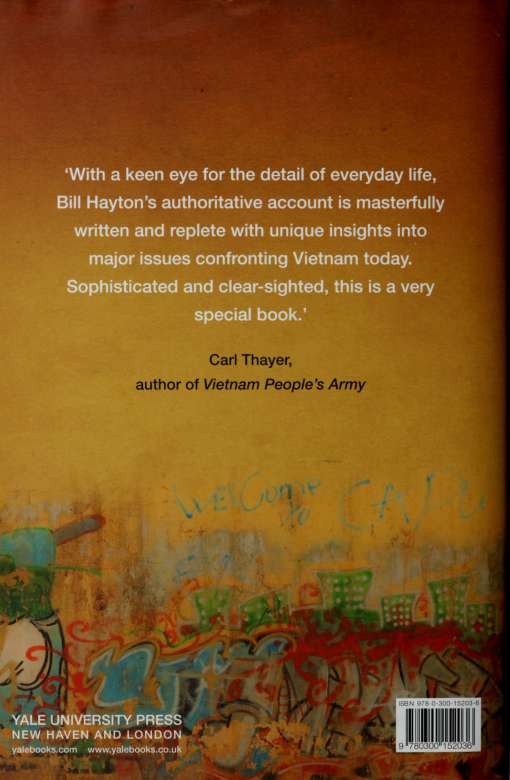
For Pam, Tess and Patrick the lights of my life
Illustrations
1 Selling chicks at a market in the central town of Hoi An.
2 A former government store, in the Old Quarter of Hanoi.
3 Stella Shoe Factory outside Hai Phong.
4 Farmers in the northwestern village of Mai Chau.
5 The conical hat industry in southeast Hanoi.
6 An illegal 'frog' market in Hanoi.
7 Nguyen Quy Due Street residents protest in December 2006.
8 Nguyen Quy Due Street in May 2009.
9 A badminton court in Lenin Park.
10 A newly-married couple in southeastern Hanoi.
11 Rapper Kim at a hip-hop gig in southern Hanoi.
12 A DJ at a hip-hop gig in southern Hanoi.
13 Helmeted motorcyclists.
14 Children in the Mekong Delta use the internet.
15 The citadel excavations in June 2009.
16 Local children in Lenin Park.
17 The Mausoleum of Ho Chi Minh in Ba Dinh Square, central Hanoi.
18 Nong Due Manh, the General Secretary of the Communist Party of Vietnam.
19 Nguyen Tan Dung, the Prime Minister.
20 A Buddhist monk and a military officer at the National Assembly, May 2006.
21 Official slogan on a local neighbourhood notice board.
22 Nguyen Van Dai, a human rights lawyer.
23 A security officer guards the home of Pham Hong Son in October 2006.
24 Junks in Ha Long Bay.
25 The memorial on Kham Thien Street.
26 A laden down motorbike in the village of Dong Ho.
27 The wreckage of a US bomber in a lake in central Hanoi.
28 Food shop in Hanoi. (Photo: David Pinder)
29 Ministry of Defence complex in central Hanoi.
30 A women's delegation at the Military Museum, central Hanoi.
31 Celebrating American Independence Day, 2006.
32 Sculptor's shop in northern Hanoi.
33 Ethnology Museum, Hanoi.
34 The terraced hills of the northwestern highlands, near the town of SaPa.
35 Handicrafts for tourists in Ta Van village.
36 Pagoda at the foot of Nui Sam mountain in the Mekong Delta.
37 Quan Su Pagoda, central Hanoi.
38 Offerings for the lunar New Year at Ba Da Pagoda.
39 Hanoi's Old Quarter. (Photo: David Pinder)
Unless otherwise acknowledged all pictures belong to the author.
Maps
1: A General Map of Vietnam.
2: Vietnam, the frontier between East and Southeast Asia.
3: Map by Herman Moll in 1720 showing 'Indochina'. From the collection
of Professor George Dutton of UCLA.
Acknowledgements
This book could not have been written without the participation, support and insight of a great many people inside and outside Vietnam. My thanks must go first to everyone who appears in the following pages: the assembly-line workers, tea-pickers, politicians, scientists and all the others who interrupted their efforts to feed their families or develop the country to answer my questions patiently.
When I first arrived in Vietnam I was amazed how easy it was to stop people on the streets and ask questions but the answers I received in such public encounters rarely breached the official meniscus. My understanding of what was told and seen came only from time spent in quiet conversation with the few people prepared to act as agents of scholarly osmosis, transferring molecules of knowledge through the membrane. I would like to thank them all here in print. It is sad indication of the constraints upon intellectual life in Vietnam that almost all the people who helped me there (whether Vietnamese or expatriate) have asked not to be identified.
Further illumination came from reading the work of the small number of western academics who have spent years diligently researching aspects of Vietnamese life. Many of them are mentioned or referenced in the text but I would like to thank them here specifically: Chapter One made much use of the published work or advice of Scott Cheshier, Ari Kokko, Jago Penrose, Jonathan Pincus, Martin Rama, Carrie Turk, Brian Van Arkadie and, in particular, Adam Fforde; Chapter Two of Pam McElwee and Mike di Gregorio; Chapter Three of Lisa Drummond, Erik Harms and Mandy Thomas; Chapter Four of Mark Sidel, David Koh and Jonathan London;
ACKNOWLEDGEMENTS
Chapter Five of Regina Abrami, Eddy Malesky, Martin Gainsborough, Martin Painter, Mark Sidel and Thaveeporn Vasavakul; Chapter Six of Zachary Abuza; Chapter Nine of Ramses Amer, Diane Fox, Alexander Vuving, Tuong H. Vu and, in particular, Carl Thayer; and Chapter Ten of Hue-Tarn Ho Tai, Oscar Salemink and Philip Taylor. Many of these people are also members of the Vietnam Studies Group online list, whose discussions are a frequent source of enlightenment and encouragement.
The small band of foreign journalists in Hanoi was an early source of information and advice. My thanks go, in particular, to Didier Lauras, Catherine McKinley, Roger Mitton, Matt Steinglass and Frank Zeller. As any journalist knows, the people who do the real work are our fixers and translators and I was very lucky to be able to benefit from the great skills of Ngo Xuan Tung, Nguyen Anh Thu, Do Minh Thuy, Tran Thi Ngoc Lan and Vu Trong Khanh. Many local journalists became friends and advisors including Bui Cam Ha, Le Quoc Minh, Nguyen Hong Ngan and Pham Trung Bac. I thank the others anonymously. The BBC Vietnamese Service was a source of succour throughout my time in Vietnam and subsequently. My thanks, in particular, go to Nguyen Giang, Nguyen Hoang, Nguyen Thi Bich Ngoc and Hong Nga. Giang and Nga read and corrected parts of my manuscript. I'm also very grateful to Jacob Gamelgaard, Mike Coleman, Ross Hughes, Tim Knight, Nora Luttmer, David Payne, Scott Robertson and Michael Turner, plus others already mentioned and more who don't wish to be - for their advice and counsel. My editor at Yale University Press, Heather McCallum, deserves double thanks, firstly for saying yes to this book, and secondly for improving it through her ever-positive criticism.
My teachers Pham Quoc Dat and Tran Hanh An first opened the doors to the richness of Vietnamese language and culture, Le Thi Ly and the lovely staff of Rainbow School looked after our children, and Grainne and Julian, Charlie and Michelle rescued me in Hong Kong when I failed to get through Vietnamese immigration controls. Families always come last in these lists but if it hadn't been for mine there wouldn't have been an expedition to Vietnam or a book. My love and thanks to them.
Colchester, England September 2009
Introduction: Another Vietnam
'The Hidden Charm' is Vietnam's seductive tourist slogan. Many Vietnamese don't like it, but it teases foreigners' yearning for adventure and discovery. The phrase conjures an image which sums up the country: the peasant girl looks up, tips back the brim of her conical hat and reveals her shy smiling face beneath. The straw-coloured hat, the bright green paddy fields and the black buffalo grazing all around - a world pure and beautiful, hidden and charming. Make the effort, implies the slogan, and your reward will be a vision of tranquillity, grace and beauty. This Vietnam promises everything your modern world has left behind: delicate women, simple living and unspoilt landscapes. The country once torn apart in prime time has been reborn, its essence untouched by the predations of foreigners. Now it is available to the discerning visitor with the patience to find it.
Next pageFont size:
Interval:
Bookmark:
Similar books «Vietnam: Rising Dragon»
Look at similar books to Vietnam: Rising Dragon. We have selected literature similar in name and meaning in the hope of providing readers with more options to find new, interesting, not yet read works.
Discussion, reviews of the book Vietnam: Rising Dragon and just readers' own opinions. Leave your comments, write what you think about the work, its meaning or the main characters. Specify what exactly you liked and what you didn't like, and why you think so.

